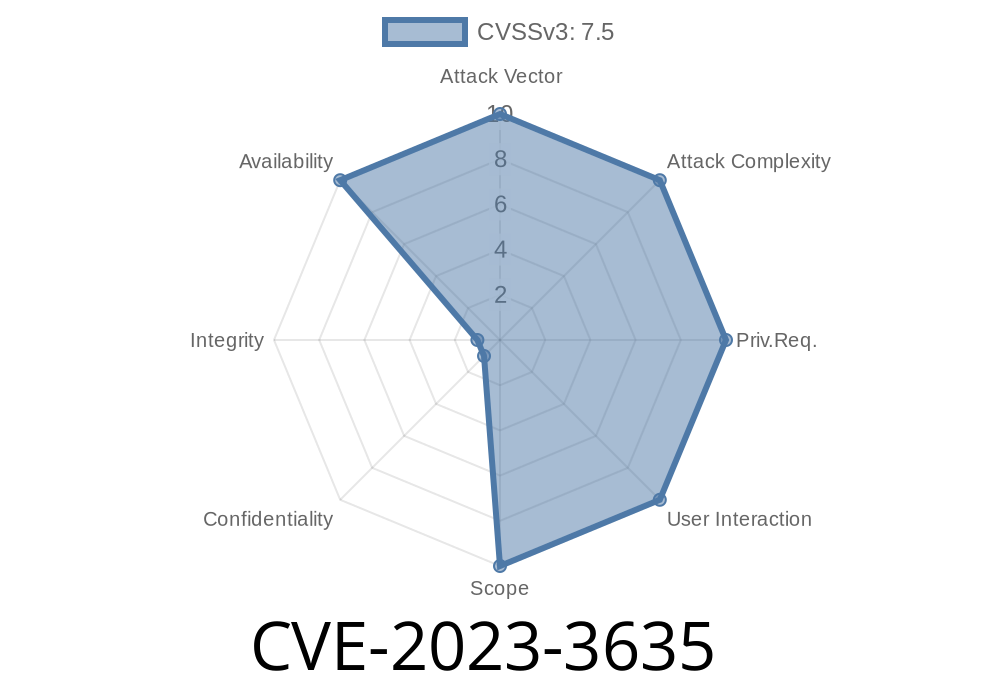---
Introduction
In June 2023, a critical vulnerability was discovered affecting the Okio library—a widely used I/O utility in the Java and Kotlin ecosystem. Tracked as CVE-2023-3635, this flaw exposes applications to Denial of Service (DoS) attacks by mishandling certain types of corrupted data when using Gzip compression. If you’re using Okio to process GZIP archives, understanding this vulnerability is essential. Below, we’ll break down what happened, show real-world code snippets, discuss the impact, and provide guidance on staying safe.
What is Okio and GzipSource?
Okio is an open-source library developed by Square that makes data reading and writing easier and faster for Java and Kotlin applications. A core part of Okio is the GzipSource class, which lets you read gzip-compressed data streams on the fly.
Normally, GzipSource takes a compressed buffer, decompresses it, and gives you back clean data. But what happens if the buffer is malformed or intentionally crafted to break things?
The Problem: Unhandled Exceptions on Malformed GZIP Data
The issue here is that malformed gzip buffers can throw unexpected exceptions during parsing. In Okio versions affected by CVE-2023-3635, these exceptions are not caught properly inside the GzipSource. Instead of handling parsing errors gracefully, Okio lets the exception bubble up—potentially crashing your app or server.
This creates a vulnerability: If an attacker sends a specially crafted "bad" gzip file, they can force your Okio-powered backend or client to crash—resulting in Denial of Service.
Proof of Concept: Exploiting the Flaw
Let’s see a simplified Java code snippet that demonstrates how this vulnerability might be triggered:
import okio.Buffer;
import okio.GzipSource;
import java.io.IOException;
public class GzipCrashDemo {
public static void main(String[] args) throws IOException {
// This is an intentionally malformed gzip buffer
byte[] badData = new byte[] { x1f, (byte)x8b, x08, x00, x00, x00, x00, x00, x00, x03, x00 };
Buffer buffer = new Buffer().write(badData);
GzipSource gzipSource = new GzipSource(buffer);
try {
// This read will throw a runtime exception that is not caught internally
gzipSource.read(new Buffer(), 1024);
} catch (Exception e) {
// In vulnerable Okio versions, this could cause process-wide crash if not handled
System.out.println("Caught exception: " + e);
}
}
}
If you’re not catching the exception outside (try-catch), or if this happens deep inside a multi-threaded server, the entire application can go down.
Impact
- Effect: If your application consumes GZIP archives from untrusted sources, an attacker just needs to upload a malicious gzip file. Your backend or client will throw an uncaught exception and may crash or restart, disrupting services.
- Reach: Any app or server using Okio’s GzipSource class is potentially vulnerable if exception handling isn’t perfect.
The Fix
The Okio developers patched this in version 3.5. by catching and properly handling potential exceptions in GzipSource. The fix ensures that a malformed buffer will not crash the whole process.
Upgrade ASAP: If you use Okio, update to version 3.5. or later.
Defensive Coding Tips
While upgrading is best, you should always wrap I/O and buffer operations in try-catch blocks to gracefully handle unexpected conditions—especially when dealing with data from outside sources. For Okio, that means:
try (GzipSource gzipSource = new GzipSource(buffer)) {
// your read operations here
} catch (IOException | RuntimeException e) {
// Log the error, avoid crashing, and alert as needed
}
Conclusion
CVE-2023-3635 teaches us that proper exception handling in data processing code is critical. A small oversight in a popular library can expose thousands of apps to easy, silent attacks. Upgrade your dependencies, audit your code for unsafe buffer parsing, and always expect the unexpected.
References
- Okio Advisory GHSA-rvgv-x6g3-r5p7
- GitHub PR: Fix for GzipSource
- Okio Changelog
- CVE-2023-3635 Details at NVD
Stay vigilant—keep your dependencies up-to-date, handle exceptions, and test with real-world attack scenarios!
Timeline
Published on: 07/12/2023 19:15:00 UTC
Last modified on: 07/26/2023 16:24:00 UTC
